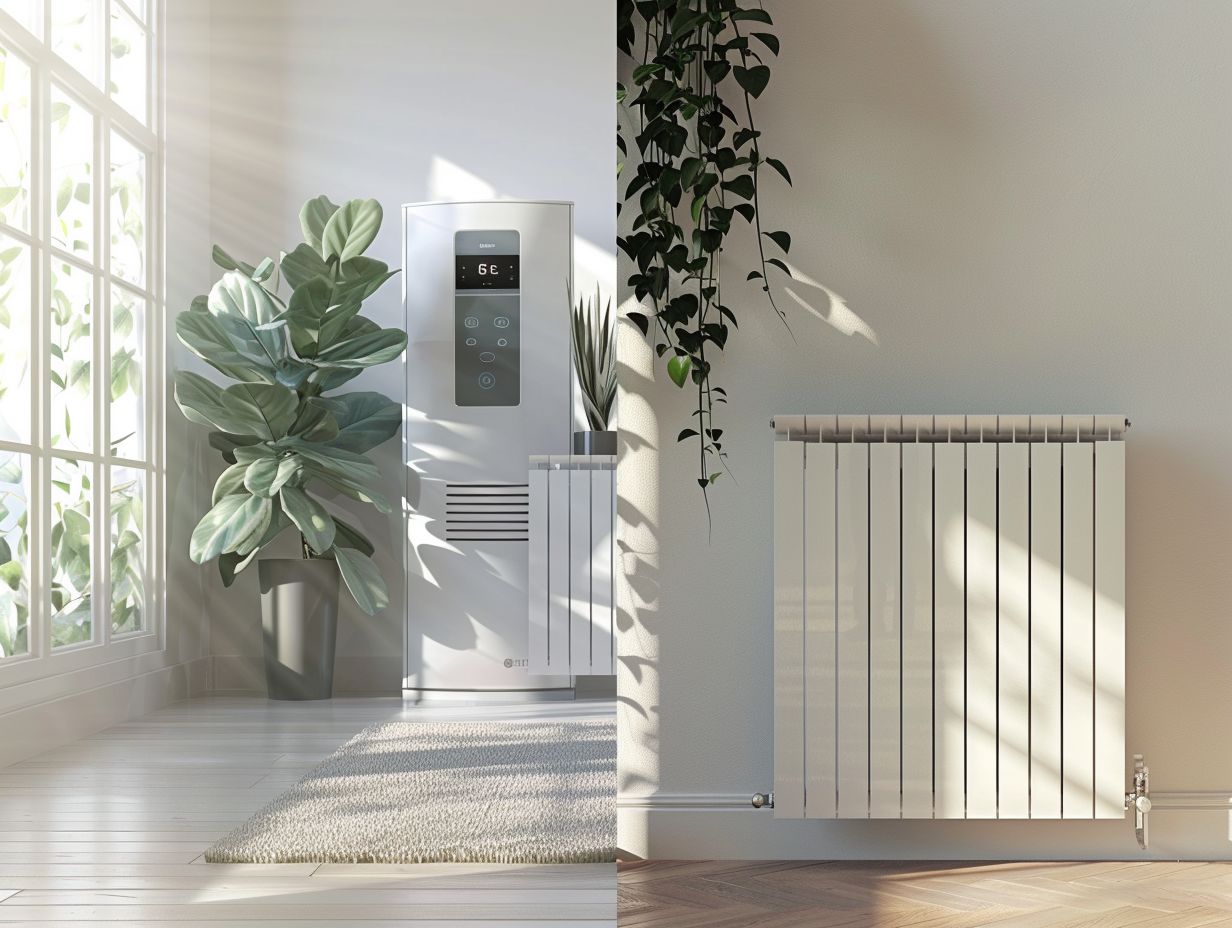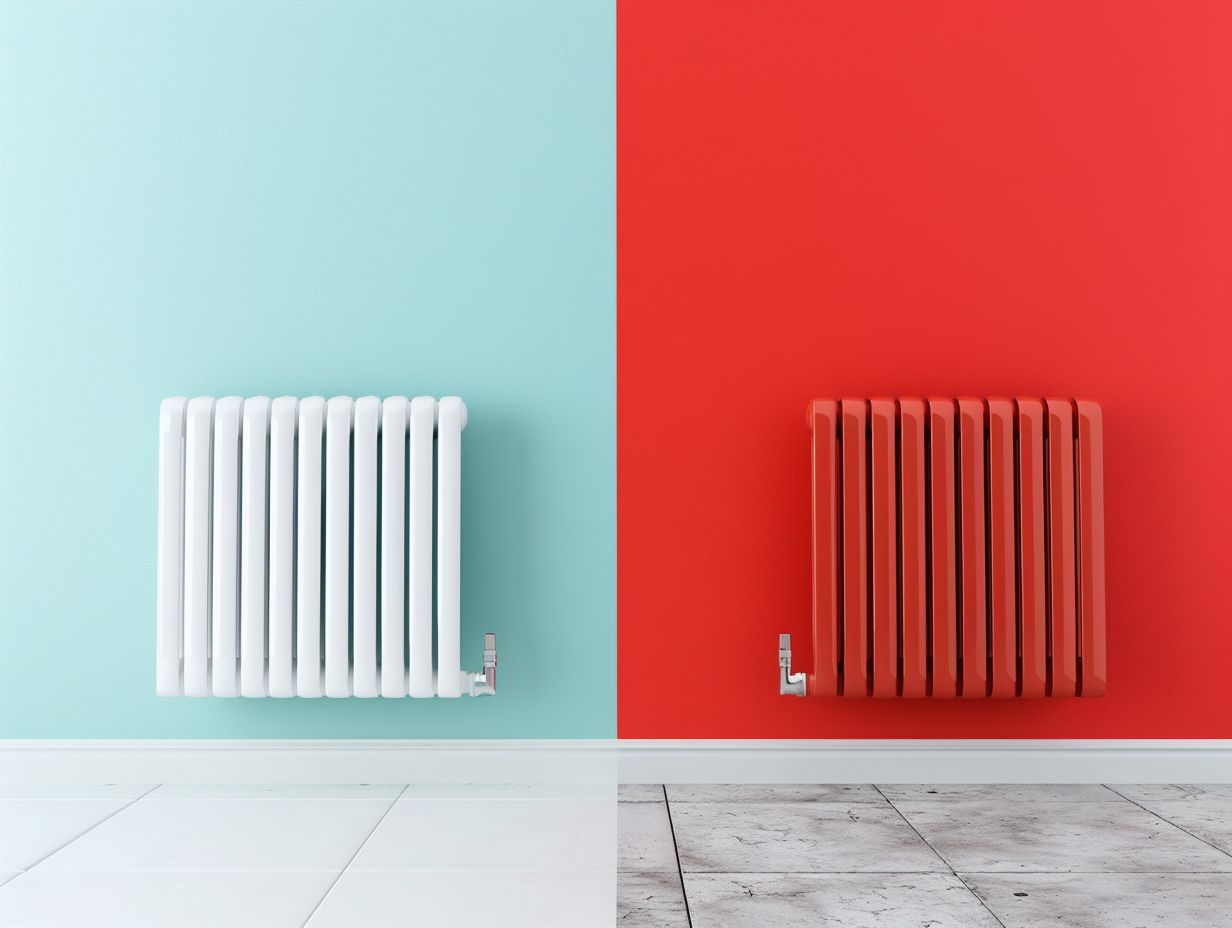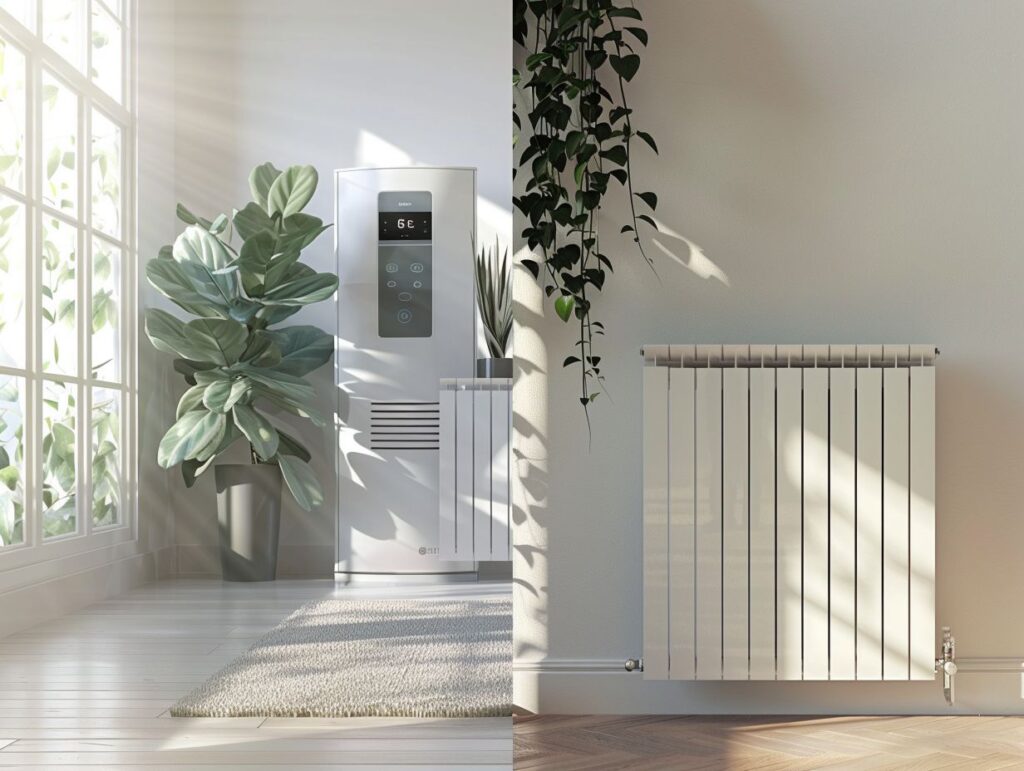Are you in the process of considering an upgrade to your heating system but finding yourself torn between electric heating or dual fuel heating?
Compare the two options based on factors such as cost, efficiency, and their respective environmental impacts. Delve into the advantages of each system; electric heating offers convenience, control, and flexible installation options, while dual fuel heating boasts cost savings, energy efficiency, and the ability to utilise multiple energy sources.
Examine the key factors to contemplate when choosing between electric heating and dual fuel heating, taking into account aspects like your home’s size, energy consumption, budget constraints, and personal preferences. By carefully evaluating these considerations, you can make a well-informed decision tailored to your home heating requirements.
Key Takeaways:

- Electric heating offers convenience and control, allowing for precise temperature settings and remote operation.
- Dual fuel heating offers cost savings and energy efficiency, as it combines the benefits of both electricity and fossil fuels.
- When choosing between electric heating and dual fuel heating, factors such as home size, budget, and personal preferences should be considered.
Comparison of Electric Heating and Dual Fuel Heating
When comparing Electric Heating and Dual Fuel Heating systems, it is essential to evaluate their efficiency, costs, and environmental impact to make an informed decision for your heating requirements.
Cost and Efficiency
When selecting a heating system, you must carefully consider cost and efficiency, as they play a critical role in determining both initial investment and long-term operational expenses. The installation cost of a heating system can vary significantly based on the type chosen.
For instance, gas central heating systems, although typically more expensive to install initially, can result in lower maintenance costs and relatively reduced energy consumption, making them a cost-effective option in the long term.
Conversely, electric radiators may have lower installation costs but can be more expensive to operate, particularly in areas with high electricity rates. It is crucial to assess not only the immediate costs but also the ongoing expenses associated with maintenance and energy usage when evaluating the overall efficiency of a heating system.
Environmental Impact
The consideration of the environmental impact of heating systems is crucial in today’s eco-conscious world, with a strong emphasis on reducing carbon emissions and promoting sustainability. As individuals and organisations strive to make environmentally friendly choices, the conversation around heating systems is gaining traction.
Traditional heating sources such as oil and gas play a significant role in greenhouse gas emissions, underscoring the necessity of transitioning to more eco-friendly alternatives.
By assessing the carbon footprint, energy efficiency and incorporation of renewable resources in various heating systems, a deeper understanding of their environmental impact can be gained.
Embracing environmentally conscious practices in heating is essential for addressing climate change and ensuring a sustainable future for future generations.
Benefits of Electric Heating

Electric Heating provides numerous benefits, such as efficient heating distribution, easy installation, and accurate temperature control for each room, making it a favoured option for numerous households.
Convenience and Control
Electric Heating systems offer you unparalleled convenience and control over indoor temperatures, giving you the ability to programme heating schedules, adjust settings for each room, and reduce energy wastage.
Programmable timers, a common feature in Electric Heating systems, allow you to establish specific start and stop times to achieve optimal comfort and energy efficiency.
With remote access controls, you have the flexibility to modify temperatures from your smartphone or tablet, providing both convenience and cost-saving benefits.
Zoning capabilities further enhance customisation by enabling you to heat different areas of your house independently, ensuring precise temperature regulation.
To enhance the performance of your system, it is crucial to conduct regular maintenance tasks such as cleaning filters and inspecting for leaks. Embracing energy-saving practices like proper insulation and mindful temperature setting can also enhance efficiency and lower utility costs.
Flexibility in Installation
Electric Heating provides you with flexibility in installation, offering a range of options tailored to your property layout and heating requirements. Wall-mounted radiators are a popular choice, known for their efficient heating capabilities and space-saving design that seamlessly integrates with your existing decor.
On the other hand, underfloor heating systems deliver uniform heat distribution across the floor, creating a luxurious warmth particularly suitable for tile or stone surfaces. If you prefer versatility in placement, portable electric heaters are a convenient choice for spot heating smaller areas.
Each installation method has its own advantages and costs, enabling homeowners to customise their heating setup according to their unique needs and preferences.
Benefits of Dual Fuel Heating
Dual Fuel Heating systems offer you a combination of gas and electric heating options, presenting you with cost savings, enhanced energy efficiency, and the versatility to switch between energy sources according to your preferences and needs.
Cost Savings and Energy Efficiency
Dual Fuel Heating systems offer you significant cost savings and enhanced energy efficiency by utilising a combination of gas and electric heating. This approach optimises energy usage while minimising heating expenses.
By leveraging the benefits of both gas and electric heating elements, dual fuel systems provide you with a versatile solution if you are a homeowner seeking to effectively balance comfort and operational costs.
The efficiency ratings of dual fuel systems are generally higher than those of traditional heating systems, ensuring that energy is utilised more effectively to heat your home. This balance not only aids in reducing utility bills but also contributes to lower CO2 emissions, making dual fuel systems a more sustainable heating option.
In the long run, the initial investment in a dual fuel system can lead to significant savings over time, making it a wise choice for those who aim to lower their carbon footprint while maximising energy efficiency.
Ability to Use Multiple Energy Sources

One of the key advantages of Dual Fuel Heating systems is the ability to utilise multiple energy sources, providing you with flexibility in energy selection, cost management, and environmental impact mitigation.
By combining both gas and electric energy sources, Dual Fuel Heating systems offer you the freedom to choose between sources based on factors such as efficiency, cost-effectiveness, and sustainability.
This flexibility means that households or commercial buildings can optimise their energy usage depending on variables like fluctuating energy prices or environmental concerns.
The incorporation of dual fuel capabilities allows for a reliable heating system that can adapt to different usage scenarios, ensuring consistent performance and comfort.
The long-term advantages of dual fuel heating extend beyond immediate cost savings, as they promote energy efficiency and reduce overall carbon emissions, thereby contributing to a greener future.
Factors to Consider When Choosing Between Electric Heating and Dual Fuel Heating
When deciding between Electric Heating and Dual Fuel Heating, you should carefully evaluate several factors such as the size of your home, energy usage patterns, budget constraints, and personal preferences in order to determine the most appropriate heating solution for your property.
Home Size and Energy Usage
The size of your home and its energy usage patterns play a crucial role in determining the most effective heating system for you, whether it’s Electric Heating or Dual Fuel Heating, ensuring optimal comfort and cost-efficiency.
The distribution of heat within your property varies depending on its size; larger homes may require multiple heating zones to evenly distribute warmth. Energy-efficient solutions, such as well-insulated windows and doors, can significantly impact energy consumption.
Programmable settings allow you to adjust heating based on room usage, further optimising energy usage. Scalable heating systems adapt to the square footage of your home, ensuring that energy is not wasted on excessive heating in larger properties.
Budget and Personal Preferences
When deciding between Electric Heating and Dual Fuel Heating, you should carefully consider your budget constraints and personal preferences to ensure that the selected system aligns with your financial capacity and heating requirements.
Electric Heating systems are favored for their relatively lower upfront costs in comparison to Dual Fuel Heating options, making them an appealing choice for individuals aiming to minimise initial expenses. It is important to bear in mind that operational costs may be higher for Electric Heating over the long term due to electricity rates.
Conversely, Dual Fuel Heating offers increased flexibility as it allows you to switch between gas and electricity based on cost-efficiency, granting you more control over your heating expenses amidst fluctuating market conditions.
Frequently Asked Questions
What is electric heating and how does it compare to dual fuel heating?

Electric heating uses electricity to generate heat, while dual fuel heating combines electricity and a secondary fuel source, such as gas or oil, to produce heat. Dual fuel heating is typically more efficient and cost-effective compared to electric heating.
What are the benefits of using electric heating?
Electric heating is typically more environmentally friendly, as it does not emit carbon monoxide or use fossil fuels. It also allows for more precise temperature control and is generally a safer option compared to combustible fuel sources.
What are the benefits of using dual fuel heating?
Dual fuel heating is known for its energy efficiency, as it allows for the use of both electricity and a secondary fuel source, depending on the current energy rates. This can result in significant cost savings for the homeowner.
Which heating method is better for larger spaces?
In general, dual fuel heating is better for larger spaces as it can provide more heat for a longer period of time compared to electric heating. However, the specific needs and layout of the space should also be taken into consideration when deciding on a heating method.
What maintenance is required for electric heating and dual fuel heating?
Electric heating systems typically require less maintenance compared to dual fuel heating, as there are no combustion processes involved. However, both systems should be regularly inspected and serviced by a professional to ensure optimal performance and safety.
Is one heating method more cost-effective than the other?
It depends on factors such as energy rates, the size of the space being heated, and the efficiency of the heating system. In general, dual fuel heating may be more cost-effective due to its ability to switch between electricity and a secondary fuel source based on energy rates.

